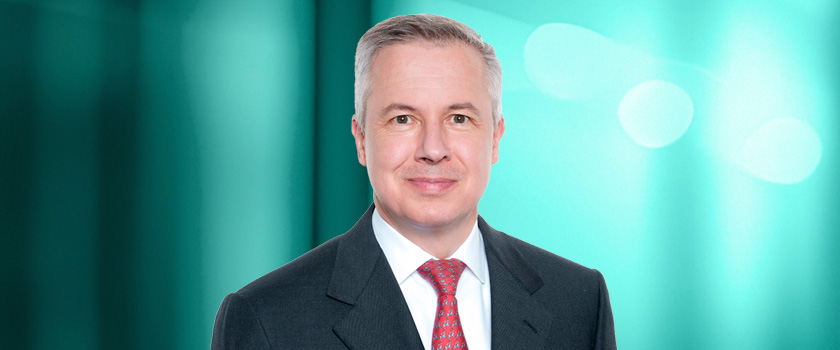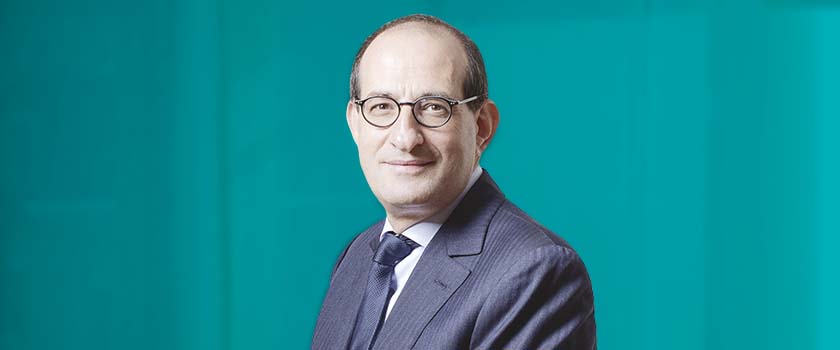L'Agefi - Pascal Schmuck (26.01.2022) - Geneva bank UBP has published strong results for 2021 despite the pandemic. The CEO Guy de Picciotto looks ahead at the year that has just started.
Union Bancaire Privée (UBP) has maintained the practice that started under Edgar de Picciotto of disclosing its annual results just before the World Economic Forum usually starts in Davos. This tradition of the Geneva bank gives us a first glimpse of the main trends prevailing in the Swiss financial landscape.
This year UBP has announced a rise in net earnings of nearly 11% for 2021 to 201.2 million Swiss francs, and assets under management at 160.4 billion, up 8.8%. The CEO, Guy de Picciotto, spoke to l’Agefi about the milestones of the past year and the challenges awaiting the bank in 2022.
At the beginning of 2021, were you expecting such a performance?
At the time our ‘worst-case’ budget was much lower. We were expecting a very big impact from interest rates in dollars and, in the end, we were able to soften the blow thanks to the increase in transaction volumes and net new money. So I’m quite satisfied with what happened, retrospectively.
What are your forecasts for this year?
Initially we expect markets to straighten out after the false start we have seen on the stock exchanges in January, linked mainly to the prospects of rate hikes, rising inflation, and geopolitical tension, particularly between Ukraine and Russia. We anticipate that interest rates in dollars will move back up, which will be positive for us. Unless this rise combines with an inflation surge to disrupt equity markets. For this year we’re pricing in four rate hikes by the Federal Reserve. And don’t forget the famous virus which is dictating events: let’s wait and see what that has in store.
Yet you’ve got through the pandemic relatively unscathed?
Like all wealth management banks. Our results are only the reflection of central banks’ monetary policy: they have been accommodative, which has supported stock markets and net inflows of capital. A stricter policy could slow down the whole mechanism.
Your operating costs grew markedly in 2021 with the acquisition of Millennium Banque Privée and the hiring of new teams. Is this trend going to continue this year?
We’re currently finalising the acquisition of Danske Bank International’s wealth management business in Luxembourg. As a result, our costs are going to rise slightly. The other potential factor would be recruitments. We are not planning any acquisitions right now, but we look at all the opportunities that come up, both in Switzerland and abroad.
US banks are complaining of wage inflation. Is this the case at UBP?
We are not seeing skyrocketing wages like on Wall Street at the moment. This payroll cost increase in the US is due partly to inflation but even more so to the staff shortage. At UBP the salary increase will be similar to previous years.
UBP has set itself the goal of becoming ‘a major player in sustainable finance’. How do you plan to achieve that?
Our main role as a financial intermediary is to guide our private and institutional clients towards responsible investment strategies. Initially this means training relationship managers but also raising awareness among clients. Then we want to broaden our offering beyond investment funds. Also, we’re working to set up indicators in order to make the approach tangible and allow clients to measure the sustainability of their portfolios. We have already included ESG metrics into portfolio statements.
Will that be enough to stand out from the competition?
The objective is not necessarily to stand out. Our main aim is to direct the majority of our clients towards responsible investment strategies. Of course, some institutions will go faster than others and there is also the risk of ‘greenwashing’, but what counts for us is to offer the right solutions to our clients. The transformation of our range of products is under way and we want to capitalise on our impact investment offering which is taking off. Those are our priorities for the coming months.









